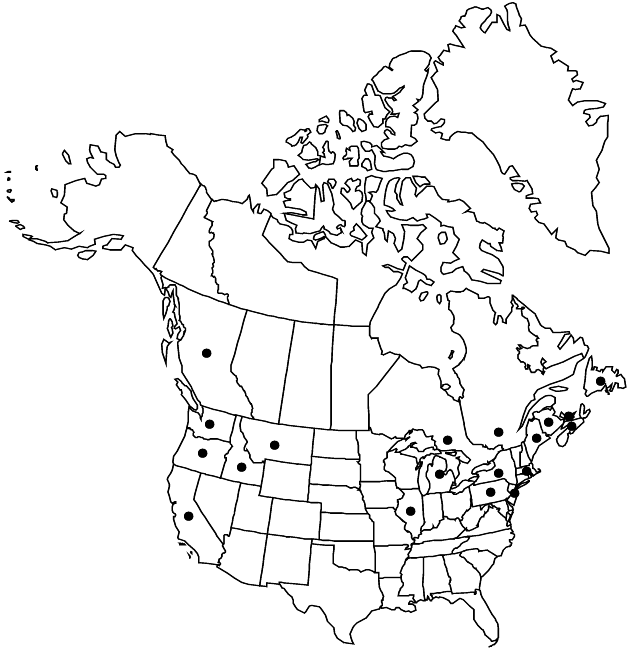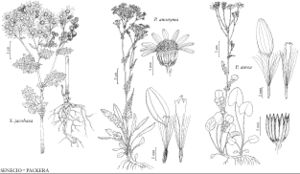Senecio jacobaea
Sp. Pl. 2: 870. 1753.
Perennials, 20–80 (–100) cm (taprooted or branched caudices surmounting taproots). Herbage sparsely and unevenly tomentose, glabrescent except in leaf-axils and among heads. Stems (often purplish-tinged) usually single, sometimes loosely clustered. Leaves ± evenly distributed (basal often withering before flowering); petiolate (sometimes obscurely); blades ovate to broadly ovate (usually 1–3-pinnate, lobes mostly obovate to spatulate), (4–) 7–20 (–30) × (1–) 2–5 (–12) cm, bases usually tapered, ultimate margins dentate (distal leaves similar, smaller). Heads (10–) 20–60+ in corymbiform arrays. Calyculi of 2–6 (inconspicuous) bractlets (less than 2 mm). Phyllaries ± 13, 3–4 (–5) mm, tips black or greenish. Ray-florets ± 13; corolla laminae 8–12 mm. Cypselae all sparsely hairy or ray cypselae glabrous. 2n = 40.
Phenology: Flowering spring–early summer(–fall).
Habitat: Disturbed sites, pastures, roadsides, and waste grounds
Elevation: 0–1500 m
Distribution

Introduced; St. Pierre and Miquelon, B.C., N.B., Nfld. and Labr. (Nfld.), N.S., Ont., P.E.I., Que., Calif., Idaho, Ill., Maine, Mass., Mich., Mont., N.J., N.Y., Oreg., Pa., Wash., Europe
Discussion
Senecio jacobaea is a weed introduced from Europe and now well established in places of cool, damp summers. It is toxic to livestock and legally noxious in most states and provinces where it occurs.
The Russian botanist E. Wiebe (2000) resuscitated Jacobaea for plants that are treated here as Senecio jacobaea, S. erucifolius, and S. cannabifolius. Phylogenetic studies may confirm the utility of recognizing Jacobaea as a distinct genus; to do so here would be premature.
Selected References
None.
